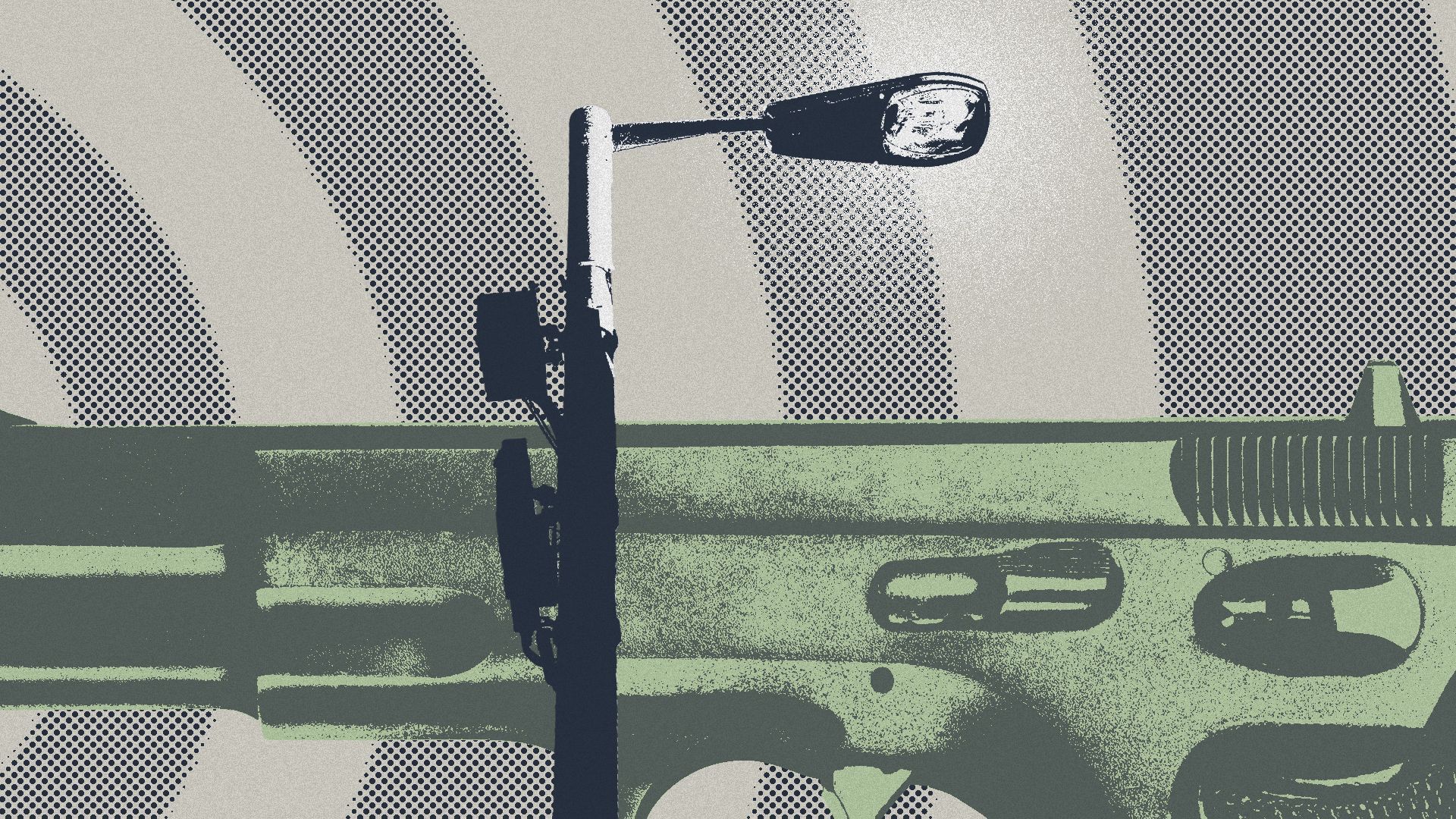Seattle debates gunfire detection technology — again
Add Axios as your preferred source to
see more of our stories on Google.

Illustration: Brendan Lynch/Axios
Seattle officials are once again debating whether to install gunshot detection technology such as ShotSpotter, which is designed to alert police to gunfire.
Why it matters: Critics, such as the ACLU of Washington, say the technology has a history of falsely identifying unrelated sounds as gunfire, potentially sending police into neighborhoods on high alert and increasing the likelihood of violent encounters between officers and the people living there.
Meanwhile, ShotSpotter's parent company, SoundThinking, says the technology has a 97% accuracy rate and can help first responders arrive more quickly to collect evidence or render first aid, even when no one calls 911.
What's happening: Mayor Bruce Harrell has proposed roughly $1.5 million in his 2024 budget for a one-year pilot project that would pair acoustic gunfire detection technology such as ShotSpotter with CCTV cameras.
- The idea is that the gunshot sensors, which are often mounted on lighting or utility poles, could help police address rising gun violence in the city at a time when police staffing is at a 30-year low, the mayor's office wrote in a memo last month.
- Jamie Housen, a spokesperson for the mayor, said while the city could choose to use ShotSpotter for the pilot program, it also might go with another company that provides a similar service.
Flashback: Last year, the mayor proposed $1 million to test a similar gunfire detection system, but the money was stripped from the budget amid questions about the technology's effectiveness.
Between the lines: An AP investigation last year identified "serious flaws" with prosecutors using ShotSpotter for evidence in criminal cases, noting that the system "can miss live gunfire next to its microphones, or misclassify the sounds of fireworks or cars backfiring as gunshots."
- Rival technologies have encountered some of the same issues, said Shruti "Tee" Sannon, technology policy program director at the ACLU of Washington.
- A study of Philadelphia's use of SENTRI, a ShotSpotter alternative that also incorporates video, found that the technology increased police workload by sending officers to incidents where no evidence of a shooting was found.
What they're saying: Councilmembers Kshama Sawant, Teresa Mosqueda and Lisa Herbold are proposing to remove the $1.5 million for gunshot detection tech from next year's budget and redirect it toward services that support residents of tiny homes and shelters.
- "ShotSpotter has a long history of not working as promised," Sawant said at a meeting last week.
- Sannon said the ACLU of Washington is also worried about how the technology could expand surveillance, potentially leading to people having their conversations on street corners or in other public spaces recorded without their knowledge or consent.
The other side: Gregg Makuch, senior vice president of marketing at SoundThinking, ShotSpotter's parent company, wrote in a statement that the technology's sensors "are tuned to detect gunshot-like impulses that are instantaneous and sharp and dismiss non-gunfire sounds."
- Recorded sounds that aren't detected as gunfire incidents are stored for 30 hours, then deleted, he added in the statement shared with Axios.
- "We take pride in the accuracy of our technology," Makuch wrote.
What's next: The City Council is expected to vote on a final version of next year's budget later this month.
